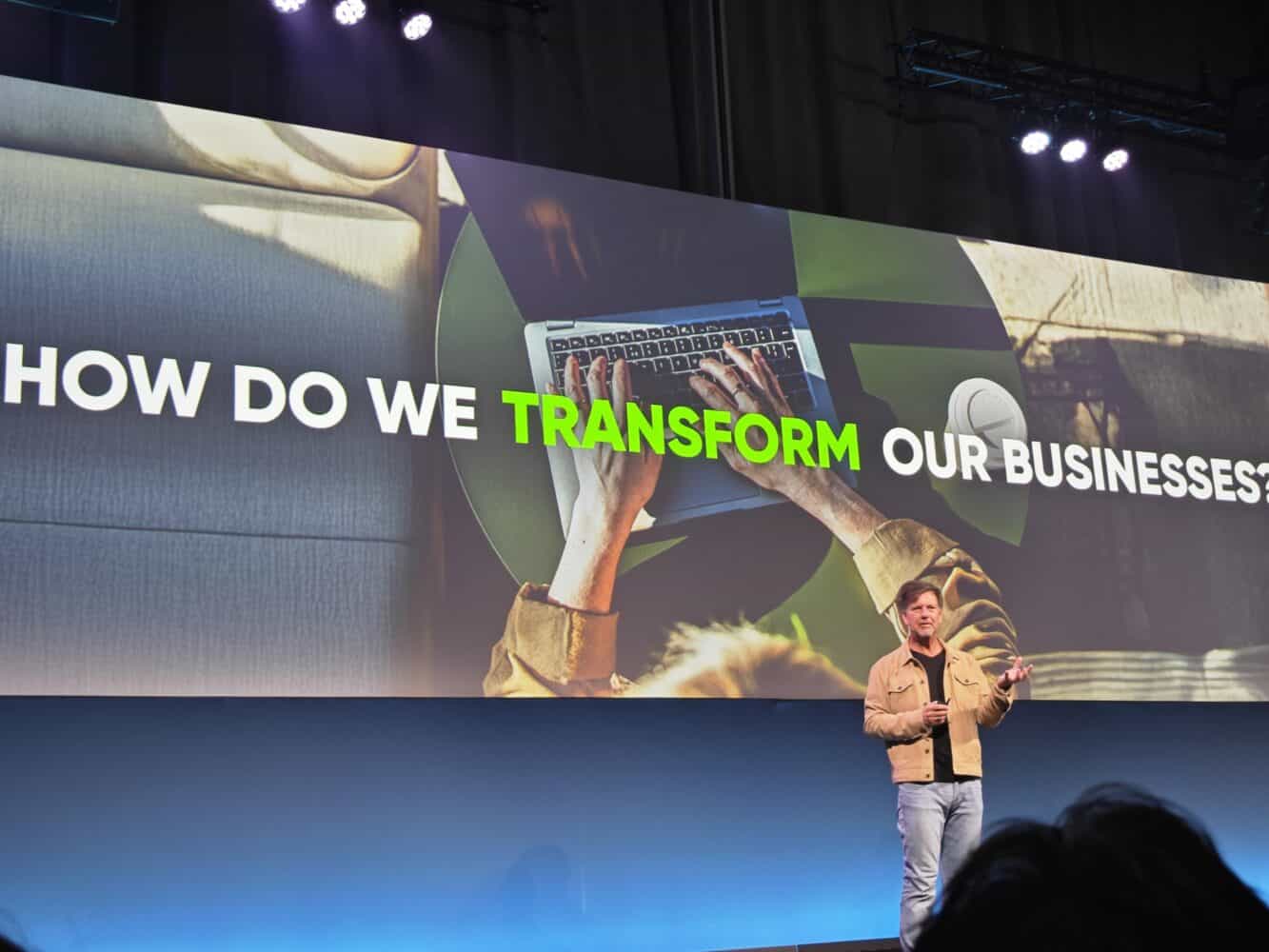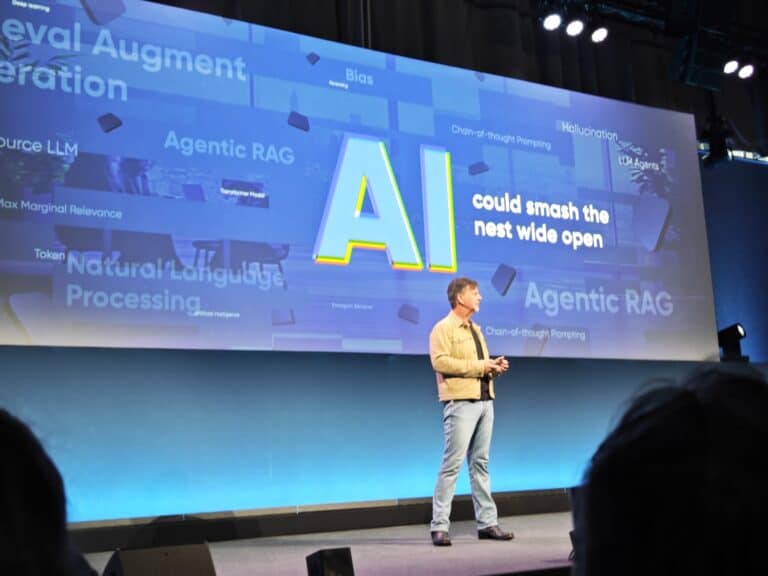Organizations face the challenge of setting up workflows faster and more efficiently. To respond, ServiceNow is increasingly talking about the “AI platform for business transformation”. By this, ServiceNow is more or less saying that the platform of platforms is the ideal foundation for workflows, but that increased capabilities mean that the platform can bring more and more AI within departments and processes. It is thus an ideal foundation for the agentic AI future that will continue to emerge in the coming months and years. We talked about it with Chief Innovation Officer Dave Wright.
The AI platform for business transformation is a way for ServiceNow to describe in a few words what the Now platform can and does today. It ensures that a company has one solution as a foundation for automating routine and complex tasks. The platform lets companies respond to change and proactively anticipate customer and employee needs. By bringing data from different systems together on one standardized platform, companies can optimize processes, collaborate better, and respond faster to new business opportunities or challenges.
According to Wright, such a foundation is crucial to leveraging AI for automation and innovation. “The speed of change is already incredibly fast, but it will be the slowest we will ever experience again,” Wright said. To add, “AI affects the way things change, and it dramatically accelerates innovation.”
AI agents as an engine
ServiceNow’s platform makes it possible to integrate AI into daily business operations. Most notable is the emergence of AI agents. These self-learning assistants perform tasks autonomously without direct human intervention. Agents can perform a wide range of tasks, from simple processes such as handling customer inquiries to more complex administrative tasks such as managing resource allocation or predicting future customer needs.
Ideally, with agentic AI, you automate tasks that traditionally require time and resources. For many companies, those gains are the reason to start deploying agents, but then it’s hard to figure out exactly how to get started. Wright indicates in our conversation that to determine use cases, it’s best to compile a top 10 list of tasks, workflows, and processes for each business department that are traditionally challenging or time-consuming. Is it possible to deploy agents who can perform the tasks, workflows, or processes independently based on a set task list they go through? If so, it makes sense to build a solution for that.
While automating existing tasks is a logical step, agentic AI shouldn’t be exclusively about repetitively going through a task list. They should also function adaptively. Therefore, AI agents constantly learn, adapt to changing conditions, and can choose the best path for a task without a company having to intervene manually. This enables companies to respond faster to market or customer needs changes.

Taking strategy to the next level
This is precisely where the difference from previous automation options must be made. In this area, there have been many innovations in recent years, all with their advantages, but they often implemented standardized rigid processes. Think chatbots or old RPA robots are often stuck in their thinking – a deviation is difficult to process. AI agents can, however, react to new information, spot opportunities, and, where necessary, involve humans in a conversation or handling. That’s where the AI platform for business transformation should come in by actually making processes faster and finding ways to create value and innovate. With a comprehensive toolbox that includes everything from process mining to automation to process integrations to connecting data, it is possible to optimize platforms and processes.
One example where AI agents can and will play a big role is in how they personalize customer interactions. By analyzing data about customer behavior and preferences, agents can take a more personal tone in a customer chat and consider what is known about the customer. The AI agent can respond quickly and accurately by keeping an eye on all this customer data from different data sources. The user thus theoretically gets the idea of talking to an AI less and less, as the conversation comes across as increasingly professional, focused, and human.
Wright explicitly emphasizes that this type of AI is not intended to replace humans, as is often the fear associated with artificial intelligence. With the platform, you have the building blocks to set up agentic AI within your organization, but according to Wright, the human-in-the-loop remains crucial. “AI is not a replacement for humans, but a tool to empower humans,” Wright said. It relieves employees of repetitive and time-consuming tasks so they can focus on the more creative, complex, or strategic stuff. That does require a corporate culture in which employees want to participate in the change that a technology like AI accomplishes.
Basis for future with agentic AI
To some extent, this is also where the philosophy of the AI platform for business transformation comes in. Technology is the platform of platforms and provides you with an organization’s technical capabilities. But here, as beautiful and promising as agentic AI is, the platform alone is not enough. It will be a matter of people, process, and technology if you want to use artificial intelligence to grow, respond quickly to change, and enter new markets. It will be about achieving a culture of constant improvement and adaptation driven by agentic AI.
ServiceNow’s AI platform for business transformation thus provides companies with the foundation for the future. A future that can change at breakneck speed, Wright points out, because of the rapid pace of innovation we have entered. As technology continues to evolve, the applications of AI will only expand. As a result, companies can explore entirely new ways of working to broaden organizational transformation.
Tip: ServiceNow takes self-service experience to the next level with AI agents
